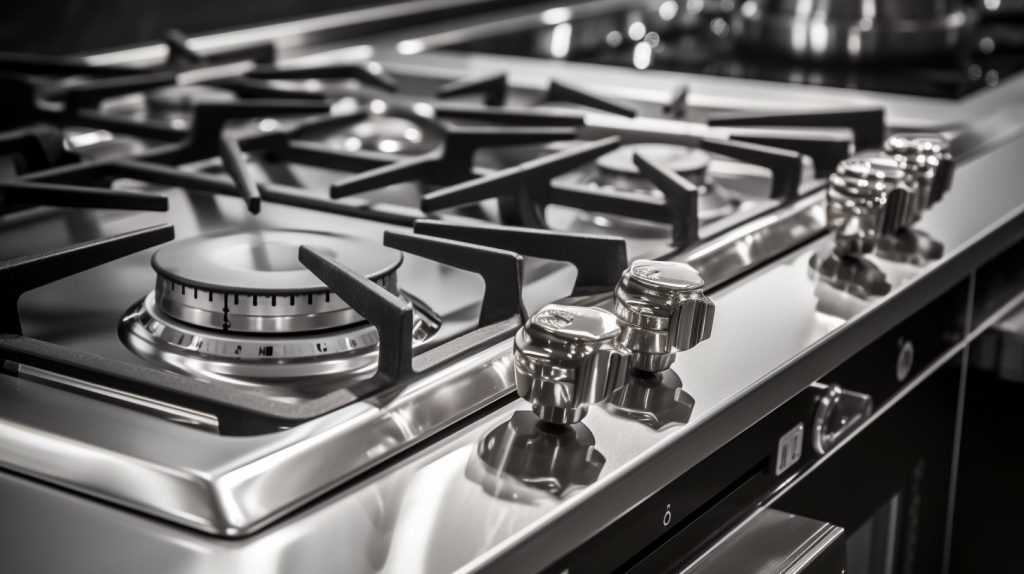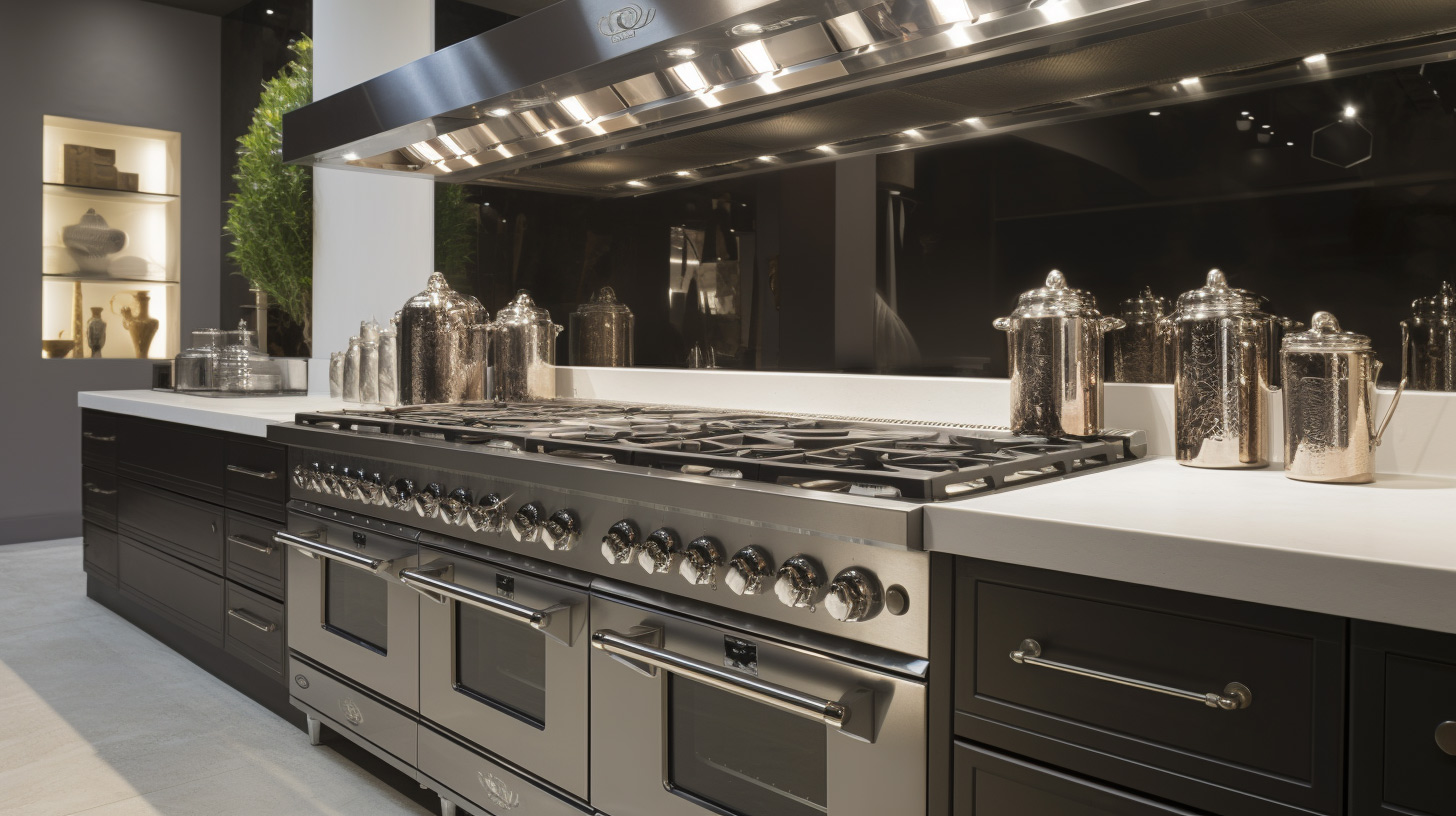When choosing an oven for your kitchen, one of the critical decisions is whether to opt for an electric or gas oven. Both options have their own set of advantages and considerations to keep in mind. In this article, we will compare electric and gas ovens to help you determine which is better suited to your cooking needs. Before delving into the details, let’s compare the fundamental differences between electric and gas ovens. Electric ovens use electricity to generate heat, while gas ovens utilize a natural gas or propane supply. Each type of oven offers distinct features and functionalities, making assessing their pros and cons crucial.
Benefits two types of Ovens
Electric ovens have gained popularity for several reasons. Firstly, they provide consistent and even heating throughout the cooking process. This uniform heat distribution results in evenly cooked dishes. Electric ovens also offer precise temperature control, allowing you to accurately set and maintain the desired heat level. Electric ovens often come equipped with features such as convection settings and self-cleaning options, making them convenient.
On the other hand, gas ovens have their own set of advantages. One significant benefit is that gas ovens heat up faster than their electric counterparts, allowing you to start cooking faster. Gas ovens also provide excellent heat control, making adjusting the flame to achieve the desired temperature easier. Furthermore, gas ovens offer a moist cooking environment, which can be advantageous for certain dishes like roasts or baked goods that require a humid atmosphere.
Which one is most appealing to people?
Determining which type of oven most appeals to people can vary depending on various factors such as geographical location, cultural preferences, and individual cooking needs. However, electric ovens are more popular and widely used in many households. Electric ovens often have user-friendly features such as digital controls, programmable timers, and preset cooking modes. These features make cooking more accessible and more convenient for many people, especially those who prefer simplicity and automation in their kitchen appliances. Electric ovens eliminate the potential risks of gas leaks or carbon monoxide emissions, providing a safer cooking environment. This safety aspect can be particularly appealing to individuals who prioritize peace of mind and the well-being of their household.
Electric ovens offer consistent heat distribution throughout cooking, resulting in evenly cooked dishes. This reliability and uniformity in cooking can be highly desirable for those who value precision and consistent results in their culinary endeavors. Electric ovens are more readily available and accessible in most regions, making them popular for many consumers. Gas lines may only be present in some areas, making it easier for people to opt for electric ovens due to their widespread availability.

Which one makes food better?
Both electric ovens and gas ovens can produce delicious and well-cooked food. The outcome and quality of the food primarily depend on factors such as cooking techniques, recipe selection, and the cook’s skill. Electric ovens generally provide more even heat distribution throughout the cooking chamber. This can result in more consistent and evenly cooked food, reducing the risk of unevenly cooked or burnt spots. The uniform heat distribution is especially beneficial for baking, roasting, or dishes that require precise temperature control.
Gas ovens tend to offer a moist cooking environment due to the presence of a gas flame. This can be advantageous for certain dishes, like roasts or baked goods, as the moisture helps to retain tenderness and prevent excessive drying. It can contribute to achieving desirable textures and flavors in specific recipes. Electric ovens often provide precise temperature control, allowing you to set and maintain specific heat levels accurately. This level of control can be beneficial for recipes that require precise temperature adjustments, such as delicate desserts or complex dishes. On the other hand, gas ovens offer excellent flame control, allowing immediate adjustments to the heat level.
Which one of them is safer?
In terms of safety, electric ovens are generally considered safer than gas ovens. If improperly handled, gas ovens rely on a natural gas or propane supply, which can present potential risks. Gas leaks, although rare, can occur and pose a safety hazard, including the risk of fire or explosions. Additionally, incomplete combustion of gas can produce carbon monoxide, a colorless and odorless gas that is toxic when inhaled. Electric ovens eliminate these risks as they operate solely on electricity, eliminating the need for a gas supply.
Electric ovens have a lower risk of fire hazards compared to gas ovens. Gas ovens involve an open flame, and accidental ignition or contact with flammable materials can lead to fires. On the other hand, electric ovens heat up through electrical elements or coils, reducing the risk of accidental fires caused by open flames. Electric ovens have automatic safety features such as thermal cutoffs and overheating protection. These features help prevent the oven from overheating and potentially causing fires or electrical hazards. Gas ovens may have safety features like flame failure devices or ventilation systems, but the risk associated with gas leaks and carbon monoxide emissions remains.
What precautions should I take when using a gas oven?
When using a gas oven, it is vital to ensure proper ventilation in the kitchen area to prevent the buildup of gas fumes. Keep the oven area clear of flammable materials; never store items on or near the oven. If you smell or suspect a gas leak, immediately open windows, evacuate the area, and contact your gas supplier or emergency services. Gas ovens can generally be used during a power outage, as they do not rely on electricity for heating. However, electric ignitions and other electronic features may not function during power outages. In such cases, it is necessary to manually light the oven using matches or a lighter according to the manufacturer’s instructions.
Conclusion
Choosing between an electric oven and a gas oven depends on your preferences and cooking style. If consistent heat distribution and precise temperature control are your top priorities, an electric oven might be the better choice. On the other hand, if you value quick heat-up times, excellent heat control, and a moist cooking environment, a gas oven may be the ideal option for you. When deciding, consider energy efficiency, safety features, and long-term costs. The better oven for cooking depends on personal preferences and the type of dishes being prepared. Some individuals may prefer the consistent heat distribution and precise temperature control of electric ovens for baking delicate pastries or achieving uniform roasts. Others may appreciate the moist cooking environment and flame control of gas ovens for certain dishes like artisan bread or perfectly seared meats. Experimenting with different oven types and techniques can help determine which option yields the best results for your specific cooking preferences and desired outcomes.
FAQ
Which one is more energy-efficient, an electric oven or a gas oven?
Both electric and gas ovens have their energy efficiency considerations. While gas ovens are more energy-efficient during operation, electric ovens are generally more efficient at converting energy to heat. This means that although gas ovens may consume less energy overall, electric ovens may be more efficient in heat utilization.
Which type of oven provides better heat control?
Gas ovens offer excellent heat control due to the direct flame that can be easily adjusted. Electric ovens, however, provide precise temperature control, allowing you to set and maintain specific heat levels more accurately. It ultimately depends on your preferred cooking and the level of control you desire.
Are electric ovens safer than gas ovens?
Both electric and gas ovens can be considered safe when used correctly. However, if not well-maintained or ventilated, gas ovens present potential risks such as gas leaks or carbon monoxide emissions. Electric ovens, on the other hand, eliminate the risk of gas-related accidents. To ensure safety, following the manufacturer’s guidelines and having regular maintenance checks for either type of oven is crucial.
Which type of oven is more cost-effective in the long run?
The cost-effectiveness of an oven depends on various factors, including energy prices in your region and the frequency of use. While gas ovens may have lower operating costs due to the relatively lower price of natural gas or propane, electric ovens generally have lower upfront costs and may require less maintenance. Consider your circumstances and usage patterns to determine which option is more cost-effective for you in the long run.


1 Comment